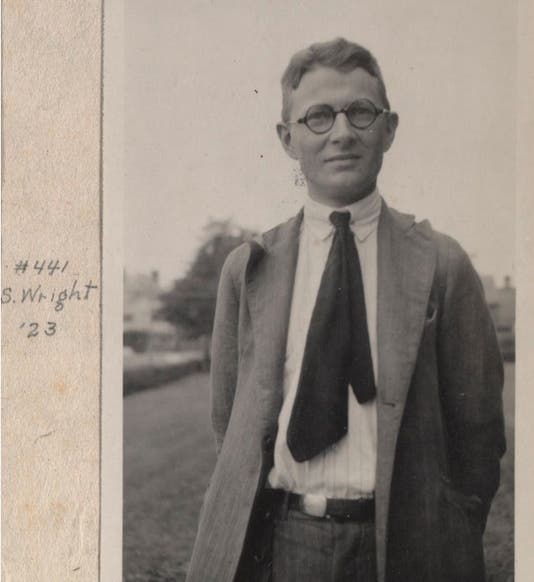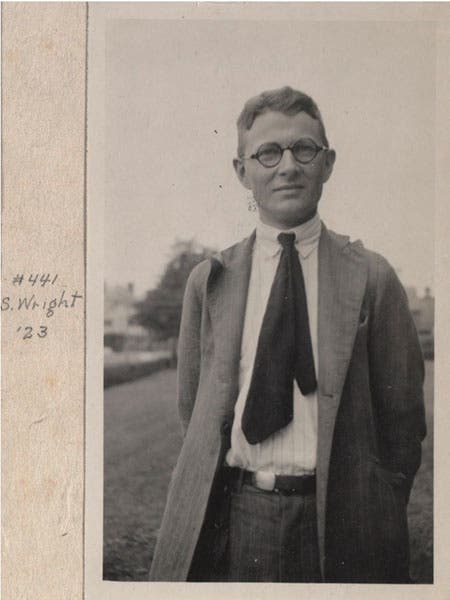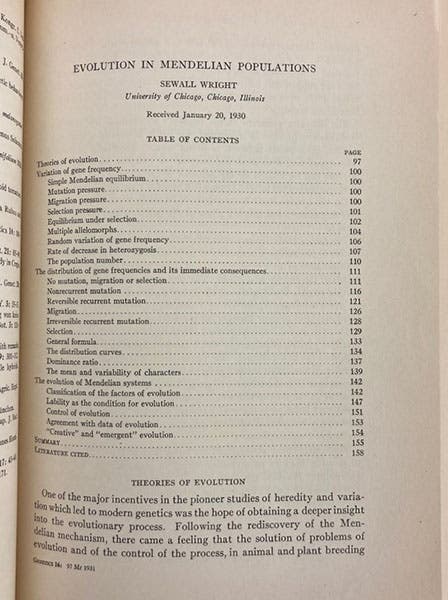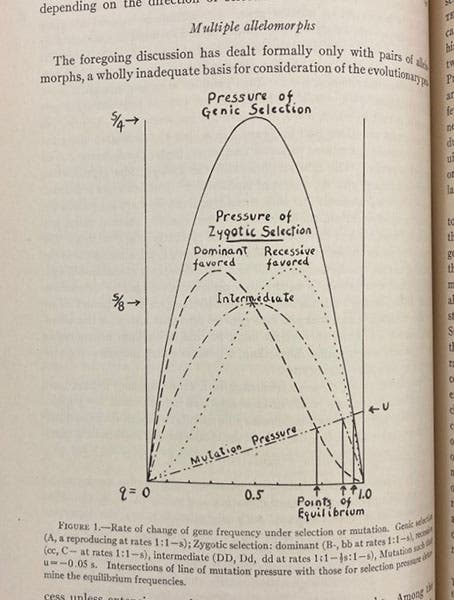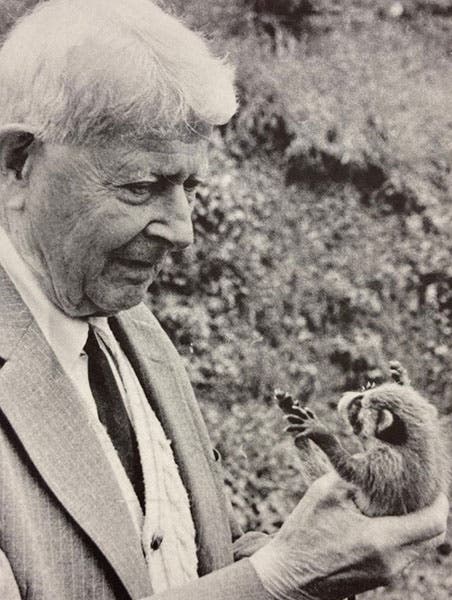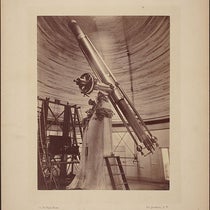Scientist of the Day - Sewall Wright
Sewall Wright, am American geneticist and evolutionary biologist, was born Dec. 21, 1889, in Massachusetts. Wright was one of the pioneers of population genetics and one of the founders, along with J.B.S. Haldane and R. A. Fischer, of what has been called the modern evolutionary synthesis, the effective marriage of Mendelian genetics and Darwinian evolution. Wright was 11 years old when Gregor Mendel's work was rediscovered, and his early academic career (at Harvard) was devoted to breeding experiments, especially with guinea pigs, trying to determine exactly how Mendelian traits were expressed in animal populations. Wright was one of the first geneticists to possess sufficient mathematical skills (entirely self-taught) to deal with the statistics of such matters as genetic drift and inbreeding in populations large and small.
Wright worked for some years for the Department of Agriculture (all his early publications are government documents, which means we have them all right here in our extensive documents collection), and then he joined the faculty at the University of Chicago. His most influential publications appeared between 1930 to 1932, when he published: "The genetical theory of natural selection” (in the Journal of Heredity, 1930); "Evolution in Mendelian populations (in Genetics, 1931; see second and third images), and "The roles of mutation, inbreeding, crossbreeding, and selection in evolution” (Sixth International Congress in Genetics, Proceedings, 1932). Even though most evolutionary biologists could not follow the mathematics of Wright's papers, they could grasp the conclusions, which suggested strongly that population genetics necessitates evolution by natural selection.
Although Fisher and Wright are always lumped together as founders of the modern synthesis, the two in fact disagreed on many major issues. Wright, for example, stressed that random variation in small populations was as great an evolutionary force as natural selection, while Fisher always maintained that it was only in large populations that evolution occurred, with natural selection dominating. Nevertheless, by 1942, Julian Huxley was proclaiming (and naming) the modern synthesis, and crediting Wright, Fischer, and Haldane for its gestation.
Most of us cannot appreciate the mathematical aspect of Wright's work, so perhaps we are justified in turning our attention to his later academic career and life. In its wisdom, the University of Chicago mandated that Wright retire in 1955, which he did, and then he took his pension to the University of Wisconsin, Madison, which paid him an additional small stipend, and where he spent the next 33 years in their Department of Genetics, a bargain if ever there was one. Not only did Weight publish important papers every year from 1912 to 1988 (that is a 76-year publishing career!), but between 1968 and 1978, he issued the four volumes of his magisterial Evolution and the Genetics of Populations. Volume 4 came off the press when he was 88 years old. His beloved wife Louise died in 1975, which left him alone in Madison, but the UW Genetics Department took great care of their senior citizen, calling every morning to check on his health, inviting him to all department functions, helping him acquire electronic reading aids when his vision began to fail. I was at Madison for 5 of those years, and I regret that at the time I did not even know who Sewall Wright was, unaware that in the eyes of many, he was the most influential figure in both population genetics and evolutionary biology for the entire 20th century. Wright died from complications from a fall in 1988, at the age of 98.
James Crow, a colleague of Wright's at Madison, told a story that says a lot about Wright the person. Wright had a grant from the National Science Foundation – this was when he was in his late eighties – and NSF offered to increase his stipend to adjust for inflation. Wright turned them down. He said that he had calculated that his productivity was declining at the same rate as the dollar, so no adjustment was necessary.
Wright had the good fortune to live for 30 years alongside his biographer, William Provine, who taped over 100 hours of interviews and collected all of Wright’s correspondence, all of which is now available for scholarly use at the American Philosophical Society in Philadelphia. Provine's book, Sewall Wright and Evolutionary Biology, was published in 1987, just before Wright's death.
William B. Ashworth, Jr., Consultant for the History of Science, Linda Hall Library and Associate Professor emeritus, Department of History, University of Missouri-Kansas City. Comments or corrections are welcome; please direct to ashworthw@umkc.edu.

